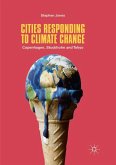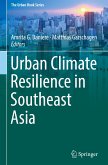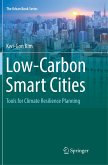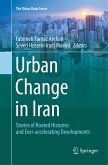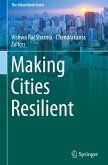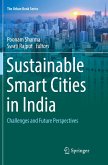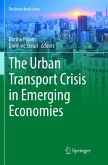This book presents pioneering work on a range of innovative practices, experiments, and ideas that are becoming an integral part of urban climate change governance in the 21st century. Theoretically, the book builds on nearly two decades of scholarships identifying the emergence of new urban actors, spaces and political dynamics in response to climate change priorities. However, it further articulates and applies the concepts associated with urban climate change governance by bridging formerly disparate disciplines and approaches. Empirically, the chapters investigate new multi-level urban governance arrangements from around the world, and leverage the insights they provide for both theory and practice.
Cities - both as political and material entities - are increasingly playing a critical role in shaping the trajectory and impacts of climate change action. However, their policy, planning, and governance responses to climate change are fraught with tension and contradictions. While on one hand local actors play a central role in designing institutions, infrastructures, and behaviors that drive decarbonization and adaptation to changing climatic conditions, their options and incentives are inextricably enmeshed within broader political and economic processes.
Resolving these tensions and contradictions is likely to require innovative and multi-level approaches to governing climate change in the city: new interactions, new political actors, new ways of coordinating and mobilizing resources, and new frameworks and technical capacities for decision making. We focus explicitly on those innovations that produce new relationships between levels of government, between government and citizens, and among governments, the private sector, and transnational and civil society actors. A more comprehensive understanding is needed of the innovative approaches being used to navigate the complex networks and relationships that constitute contemporary multi-level urban climate change governance.
Debra Roberts, Co-Chair, Working Group II, IPCC 6th Assessment Report (AR6) and Acting Head, Sustainable and Resilient City Initiatives, Durban, South Africa
"Climate Change in Cities offers a refreshingly frank view of how complex cities and city processes really are."
Christopher Gore, Associate Professor and Chair, Department of Politics and Public Administration, Ryerson University, Canada
"This book is a rare and welcome contribution engaging critically with questions about cities as central actors in multilevel climate governance but it does so recognizing that there are lessons from cities in both the Global North and South."
Harriet Bulkeley, Professor of Geography, Durham University, United Kingdom
"This timely collection provides new insights into how cities can put their rhetoric into action on the ground and explores just how this promise can be realised in cities across the world - from California to Canada, India to Indonesia."
Hinweis: Dieser Artikel kann nur an eine deutsche Lieferadresse ausgeliefert werden.
Cities - both as political and material entities - are increasingly playing a critical role in shaping the trajectory and impacts of climate change action. However, their policy, planning, and governance responses to climate change are fraught with tension and contradictions. While on one hand local actors play a central role in designing institutions, infrastructures, and behaviors that drive decarbonization and adaptation to changing climatic conditions, their options and incentives are inextricably enmeshed within broader political and economic processes.
Resolving these tensions and contradictions is likely to require innovative and multi-level approaches to governing climate change in the city: new interactions, new political actors, new ways of coordinating and mobilizing resources, and new frameworks and technical capacities for decision making. We focus explicitly on those innovations that produce new relationships between levels of government, between government and citizens, and among governments, the private sector, and transnational and civil society actors. A more comprehensive understanding is needed of the innovative approaches being used to navigate the complex networks and relationships that constitute contemporary multi-level urban climate change governance.
Debra Roberts, Co-Chair, Working Group II, IPCC 6th Assessment Report (AR6) and Acting Head, Sustainable and Resilient City Initiatives, Durban, South Africa
"Climate Change in Cities offers a refreshingly frank view of how complex cities and city processes really are."
Christopher Gore, Associate Professor and Chair, Department of Politics and Public Administration, Ryerson University, Canada
"This book is a rare and welcome contribution engaging critically with questions about cities as central actors in multilevel climate governance but it does so recognizing that there are lessons from cities in both the Global North and South."
Harriet Bulkeley, Professor of Geography, Durham University, United Kingdom
"This timely collection provides new insights into how cities can put their rhetoric into action on the ground and explores just how this promise can be realised in cities across the world - from California to Canada, India to Indonesia."
Hinweis: Dieser Artikel kann nur an eine deutsche Lieferadresse ausgeliefert werden.


